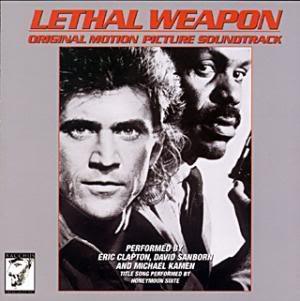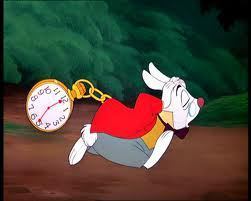Jennifer Bray-Weber's Blog, page 94
October 23, 2012
Link Of The Week
Good Morning Muse Trackers!
Even though this is not a “writerly” website, I’ll hope you take a few minutes to link over and take a peek. This is an important time and one when we get to exercise our right to vote. This site gives you tons of information about all the candidates- national and local- and about the whole process in general. (It would be a great research site if your story was going to include a hero/heroine involved in politics or the voting process!) We don’t care who you vote for, just get out there and do it.
http://www.usa.gov/Citizen/Topics/Voting.shtml
**To all our world-wide friends, next week we will be back to finding cool places for all of us to use with our stories!
**Please do NOT make political comments here. This is only meant to be a place to provide information!!


October 21, 2012
Pitch to an agent… Wait, we’ve added editors too! by Candi Wall
I’m seriously late!
I had every intention of having this post up this morning. I planned to be up before everyone else and get this sucker up and running for my Sunday morning slot. That was before I overslept, found out I needed to help my son move into his new place, realized I’d neglected my laundry, needed to do some grocery shopping (what? nobody wants peanut butter, ham and pickles for lunch?), and ended up building models with both my boys until 9:30 at night.
That’s my life. Hope you still love me.
Anyway, I have news! First, I’m happy to announce that I signed with Samhain for another novel. This one is titled STAY and the plan is to write a series about the brothers we meet in this first novel. Stay tuned….
Second, we’ve undergone some construction…
And IT’S OFFICIAL.
We have now introduced editors to our ‘Agent Shop’ pitch days. That’s why that handy-dandy tab at the top now reads Agent/Editor Shop.
SQUEEEE!
That’s right. That means you’ll have opportunities to pitch to agents and editors. WOOT!
While I still have several invitations out with both editors and agents, the response thus far has been very positive – as you can see from the bar at the right.
I’ll keep updating the sidebar as I receive confirmations, but we have a stellar lineup thus far.
I’ve updated the rules/directions as well, (THE BIGGEST BEING PITCH DAY IS NOW ON SATURDAYS) so make sure you check out the Agent/Editor Shop tab above, spread the word and get ready.
Happy writing!
Candi


October 18, 2012
Dialogue- “I’m Gonna Eat My Words!”
This past weekend was the NW Houston RWA writing conference. We were lucky enough to have James Scott Bell be our teacher. If you’ve followed Muse Tracks for awhile, you know I wrote a couple of blogs on his teachings before. One of them I wrote just from the first 5 minutes of his workshop! He is an amazing teacher and if you EVER have the chance to hear him, take it.
JSB contends that it is a compression and extension of the action of your story. There should be no filler, no small talk. If it doesn’t advance the plot, reveal something about the character or the theme through what the character says then you should put a big black line through it. It is a tool to spice up your stories, don’t waste it with banal conversations.
Not only should it have specific purpose, it should reflect the personalities of the characters speaking. You wouldn’t have a sweet elderly nun ask where the f*** is the bathroom. Likewise, you wouldn’t have a gang member state that there was a plethora of doilies on the Louis XIV chaise. It just doesn’t work!
He was wonderful at showing examples from movies that illustrated his points. In Dashiell Hammett’s The Maltese Falcon, Sam Spade who is the “take charge” kind of protagonist confronts the odd little intruder, Joel Cairo. “I’ve got you by the neck, Cairo. You’ve walked in and tied yourself up, plenty strong enough to suit the police, with last night’s killing. Well, now you’ll have to play with me or else.”
Mr. Hammett’s word choice is brilliant. Sam is the alpha and there’s no mistaking that point. Now contrast it to the words used by Cairo who always smelled faintly of gardenias. “I made extensive inquiries about you before taking any action, and was assured that you were far too reasonable to allow other considerations to interfere with profitable business relations.” No one could confuse the two characters here. Not only did the words reveal things about the plot, the word choice painted a picture of both men.
Pay attention to the vocabulary, expressions, regionalisms, syntax, word order and how they put the sentence together. This is all part of the greater tool called subtext. If your character walks onto the page and says, ” Today I have hunger. Where to go for food?” You could probably conclude that English is not his native tongue and he’s still doing literal translations in his head before speaking. You don’t need a paragraph of prose to tell us that he hasn’t been in this country for a terribly long time.
James Scott Bell also points out that there are three primary roles that people take on. There is the parent, the adult, and the child. If two adults are talking, both are rational, considerate, and conciliatory. Press the snooze button, I’m going to sleep! Where’s the conflict? Where’s the spice? Now make one of your characters assume the child role and one the adult or parent role, you’ve got a lot of potential for clashing.
JSB used the movie The Odd Couple to illustrate this point. Not only did it create conflict, it also created humor. Oscar and Felix alternately took turns playing different roles, but they were rarely both on the same level. Lethal Weapon was another great example of using changing roles to create friction, drama, and comedy. Danny Glover was obviously the adult, and often the parent, while Mel Gibson was the semi-psychotic child yet both were accomplished police veterans doing their job better than anyone else. The dialogue between the partners was often tense, sometimes poignant, and occasionally confusing, but it kept us glued to our seats.
Our characters have the chance to flood our stories with the secret spice of dialogue. It can truly make or break our novels. Just remember that dialogue in fiction is NOT real life speech. We want to create illusions of reality, but it always has to be compressed and move the tale forward.


October 17, 2012
Triberr – An Author’s Quick Guide
Song of the Day: Unity by Shinedown
(This post originally appeared October 5, 2012 on The Ruby-Slippered Sisterhood blog.)
So what is this Triberr people keep talking about? How does it work, and, more importantly, do I have to dress in animal pelts and coif my hair with chicken bones if I join?
Let’s break down Triberr into easy digestible chunks, shall we.
First, what exactly is Triberr? In short, Triberr is a reach multiplier. Huh? What does that mean? Triberr is a community of bloggers who also double has pimps, or marketing tools. These bloggers band together in tribes and share blog posts. When one tribe member posts a blog, the blog is tweeted through Twitter by all the other tribe members.
What is a tribe? No, it’s not drinking the Kool-aid. Tribes are collaborative groups of bloggers that often have a commonality. In our case, that might be writers and reviewers. Groups might consist of cliques for a more narrow target market, such as authors who write historical, erotica, thriller, etc. Tribe mates in these classification specific units share quality, relevant content and networking, and often provide guest posting opportunities.
How does it work? Triberr easily manages this through the RSS feeds (every blog had one). Triberr automagically imports blog posts into the tribal stream (much like a Twitter stream or Facebook wall) which is shared by all tribe mates. Tribe mates then share these posts with their Twitter followers, either manually or automatically.
I’ll give you an example. Say I write a fascinating post on Caribbean pirates. For simplicity’s sake, let’s assume I have 10 tribe mates. My one post is tweeted 10 times. Now  think about how many Twitter followers each of my mates might have. Also think about how many people integrate their Twitter accounts with other social media networks like Facebook. The number of possible exposure grows exponentially. And what if you belong to more than one tribe? Whoa! Now that’s driving traffic to your site.
think about how many Twitter followers each of my mates might have. Also think about how many people integrate their Twitter accounts with other social media networks like Facebook. The number of possible exposure grows exponentially. And what if you belong to more than one tribe? Whoa! Now that’s driving traffic to your site.
Let’s one-up that. Every tribe mate can reblog your post. Reblogging through Triberr offers extra incentives. Let’s go back to my pirate post. Tribe mate Johnny thinks my post is pretty awesome. He reblogs it on his blog, putting my article in front of a new audience. Any comments made to the post on Johnny’s blog will show up on mine as well. And if tribe mate Orlando also reblogs my post to his site, any comments made there will appear on both mine and Johnny’s blog. In other words there is no loss of engagement. This is good for all involved. It’s like guest posting. Less work and more interactions. Wow. I’m all over that!
Triberr is a community of engagement, and it’s growing. There are forums called bonfires for tribe members to ask questions, get tech support, network, and more.
Tribe members also collect bones. No Triberr is not conducting secret cannibalistic rituals. Bones are the equivalent to currency. Bones are earned through activity on the site and they are spent on benefits to bloggers and to creating more tribes.
But why use Triberr? Here’s the important part. When invited to join Triberr, you become a part of an instant community. Not only are you connecting with like-minded bloggers, you are expanding your potential readership sweep. It’s share and share alike. Your post gets distributed. Tribe mates are sharing good relevant content to their followers. And followers are exposed to you. Your blog traffic grows. For authors, pffsh, it’s a no brainer.
Triberr is always improving, too. Soon the network will be integrating social media sites like Facebook and Pinterest. Can you just imagine the potential reach? Get your ooga mooga primitive groove on and check it out.
Triberr.com/
Any thoughts? Questions? Are you on Triberr and would like to share your experience? Let’s hear from you.
(This post originally appeared October 5, 2012 on The Ruby-Slippered Sisterhood blog.)


October 16, 2012
Link of the Week – Freedom
One of my biggest distractions is the lure of the internet. I’ll be chugging along, writing the next masterpiece, when I hit a bump. It may be the need of a thesaurus, do a bit of  research, or check the etymology of a word, and suddenly, I’ve popped on to the internet. You know what happens from there. Yep, I’ve got to check my email. While I’m at it, I might as well see what’s happening on my social media networks. Next thing I know, half an hour of my writing time has been sucked away- time I will never regain. Damn you, Facebook!
research, or check the etymology of a word, and suddenly, I’ve popped on to the internet. You know what happens from there. Yep, I’ve got to check my email. While I’m at it, I might as well see what’s happening on my social media networks. Next thing I know, half an hour of my writing time has been sucked away- time I will never regain. Damn you, Facebook!
So, on that note, here is a handy, dandy tool to keep slackers like me from logging on.
Freedom is an app that blocks you from the internet for a predetermined amount of time. There is a one-time nominal fee for the app, but it just might be worth it for us writers.


October 11, 2012
Glutton for Punishment? by Candi Wall
I was up late last night. Thinking. Biting my nails. Refreshing the six different tabs I had up on my computer. My ARC of Primitive Nights staring back at me all but screaming for my attention.
But I couldn’t focus. Why?
Because it’s the final day of voting in Harlequin’s So You Think You Can Write contest. Yep, I entered. What’s wrong with me?
Why would I put myself through the stress? I went to bed with my mind buzzing from all I had accomplished through the day, what I hadn’t accomplished, a new book idea, the laundry I needed to fold… Well, you get the picture. But when I woke up this morning, all I could think was, ‘Why do we do this to ourselves?’
Are we gluttons for punishment?
We pour our hearts and souls into every word we write. We send our work out knowing we’ll receive rejection. And it doesn’t matter if it’s self-pubbing, agent hunting, or contests. All venues have the potential for failure or rejection. We spend hours building our online presence, telling the world who we are, and all the while, we’re surrounded by the possibility of failure. And we do fail.
You’d think that would be enough to make us throw in the towel.
But not us. NO! Not writers. We’re crazy that way.
It took me two seconds of thought (and a healthy dose of caffeine) to decide why I do what I do.
Here’s my top ten:
I HAVE to write. Seriously. I think my brain would swell and ooze out of my ears if I didn’t dump my ideas onto paper.
There’s little that compares to typing THE END
The people I meet. I met some of my dearest friends in the writing world.
The support that’s out there! Our government could take a page from the writing world…
Failure is just a small backward step on the road to success, and each step back taught me how to leap forward.
Because if I wasn’t a writer, I couldn’t have Twitter conversations about twitching penises. (True story)
I live vicariously through the success of my fellow writers. It keeps me dreaming…
No matter how hard I fall, other writers are there to pick me up again.
Because someday, I want a fan to say, “Your book touched me.”
I’ll be gone someday. My art will forever be a part of history…
And of course, that one success can wipe away all the pain that came first…..
So tell me. Why do you put yourself through it? Why do you write?



October 10, 2012
Hump Day Kick Start – Hedge Trimming Edition
Song of the Day: Poison by Alice Cooper
Hump Day Kick Start – for your muse, a writing picture prompt, or just a visual treat.

Photo provided by Getty
This looks to be your classic socialite and groundskeeper scenario. Or is it?
Could she be bribing the gardener into planting poisonous herbs so she can discreetly off her husband? Maybe she’s rewarding him for a job well done on her hedge. Perhaps he’s an undercover agent who just gave ‘bugged’ flowers to the sexy mob boss.
Are those shears in his belt, or he just happy to see her. LOL. Lame, I know.
Do me better. What’s going on in the picture. Let’s hear from you.


October 9, 2012
Link Of The Week- Are You Tired Of Being A Starving Artist?
Candi’s article yesterday got me to thinking. (I know. I know. It’s a dangerous thing for me to do!)
The writing industry is changing and she’s keeping at the forefront by introducing Editor Shop. We all need to find ways we can make money doing this thing that we love. While we now have different avenues we can take to get our stories published, is it enough to survive? Can we make a decent living with our books, novellas etc.? The reality is that it’s still tough. How can we supplement that income? One way is through this web site. It’s free to join, but you must sign in before you can get to the meat of the web site.
“Triond is a complete publishing service that offers a new approach for publishing online. We publish your work on a network of niche websites so you reach a wider audience, gain more recognition and earn more revenue…Combining your knowledge and creativity with our publishing expertise will generate greater readership, wider recognition, and higher revenues for your work.”

October 8, 2012
Agent Shop and crawling back out of my hole.
Life is sinister. Even for a glass-half-full person like me.
I’ve missed SO much in the last year due to incredible things happening in my personal life. I’ve kept up as much as possible with those closest to me via scattered online catch up sessions. My best friend lives less than five minutes away, and I haven’t seen her in MONTHS!
I miss my online family, my writing family. But I’m working the kinks out and getting back in the groove. Harder than it sounds since I’ve also been finishing final edits on PRIMITIVE NIGHTS, squeee! Can’t believe it’ll be out in January.
Er, anywho… Sorry about the squirrel moment. I get sidetracked. Easily.
So for my re-return, I’ll be posting new information for the Agent Shop days coming in the next few months. ANy of the dates still to be determined will be updated in the Agent Shop sidebar as I get confirmations. (There may also be an Editor Shop coming in the near future!)
For those of you who haven’t heard of Agent Shop, there’s a handy tab at the top that will give you all the deets you need, but basically, we have a guest agent, you pitch (in two hundred words or less), if agent likes, she/he requests something. Simple. And we usually have some sort of fun comment game to guarantee one lucky pitcher the top pitch slot.
So here’s the schedule for the rest of this year and what I’ve booked so far for 2013.
Oct. 21st 2012 – TBA
Nov. 18th 2012 – Melissa Jeglinski w/ The Knight Agency
Dec. 16th 2012 – TBA
Jan. 13th 2013 – TBA (Release date for PRIMITIVE NIGHTS so watch for something special…)
Feb. 17th 2013 – Jessica Alvarez – BookEnds, LLC.
Mar. 17th 2013 – Mollie Glick w/ Foundry Media
April 21st 2013 – TBA
May 19th 2013 – Becky Vinter w/ Fine Print Literary
June 16th 2013 – TBA
Sounds good to me!
That’s it for now. I’ll be posting on Sundays from here out and running Agent Shop on the scheduled dates.
Visit soon. Oh, and if you want to make sure you get Agent Shop updates, you can follow me on TWITTER and FACEBOOK I post the updates there as I get them.
Have a great one!


October 4, 2012
I Don’t Want To Listen!
It’s given to us whether we want it or not. We often ignore it even if we know it’s for our own good. It typically distills concepts that are floating around in our brain into a few easy sentences. We are grateful for it, we resent it. However you may feel about this topic, advice is always all around us.
I’m going to take some advice of my own.
We are now two weeks away from the Lone Star Writing Conference (www.nwhrwa.com) and I have a lot on my plate. This conference is my baby. I’m responsible for the thousands of small details that go into the making of an event like this. It will be an awesome conference, but I’m also trying to continue being a writer. This led me to looking up advice by writers to other writers.
Here’s what I found:
Stephen King- “Mostly when I think of pacing, I go back to Elmore Leonard, who explained it so perfectly by saying he just left out the boring parts. This suggests cutting to speed the pace, and that’s what most of us end up having to do (kill your darlings, kill your darlings, even when it breaks your egocentric little scribbler’s heart, kill your darlings)…I got a scribbled comment that changed the way I rewrote my fiction once and forever. Jotted below the machine-generated signature of the editor was this mot: “Not bad, but PUFFY. You need to revise for length. Formula: 2nd Draft = 1st Draft – 10%. Good luck.”
 Ernest Hemingway- (Also known as Papa) He agreed to a very rare interview with George Plimpton, editor of “The Paris Review” in 1958.
Ernest Hemingway- (Also known as Papa) He agreed to a very rare interview with George Plimpton, editor of “The Paris Review” in 1958.
Interviewer: How much rewriting do you do?
Hemingway: It depends, I re-wrote the ending to “Farewell to Arms”, the last page of it, thirty-nine times before I was satisfied.
Interviewer: Was there some technical problem there? What was it that had stumped you?
Hemingway: Getting the words right.
Kurt Vonnegut- 8 Rules For Writing A Short Story
1. Use the time of a total stranger in such a way that he or she will not feel the time was wasted.
2. Give the reader at least one character he or she can root for.
3. Every character should want something, even if it is only a glass of water.
4. Every sentence must do one of two things-reveal character or advance the action.
5. Start as close to the end as possible.
6. Be a Sadist. No matter how sweet and innocent your leading characters, make awful things happen to them-in order that the reader may see what they are made of.
7. Write to please just one person. If you open a window and make love to the world, so to speak, your story will get pneumonia.
8. Give your readers as much information as possible as soon as possible. To hell with suspense. Readers should have such complete understanding of what is going on, where and why, that they could finish the story themselves, should cockroaches eat the last few pages.
 Anne Lamott- “For me and most of the other writers I know, writing is not rapturous. In fact, the only way I can get anything written at all is to write really, really shitty first drafts.
Anne Lamott- “For me and most of the other writers I know, writing is not rapturous. In fact, the only way I can get anything written at all is to write really, really shitty first drafts.
The first draft is the child’s draft, where you let it all pour out and then let it romp all over the place, knowing that no one is going to see it and that you can shape it later. You just let this childlike part of you channel whatever voices and visions come through and onto the page. If one of the characters wants to say, “Well, so what, Mr. Poopy Pants?,” you let her. No one is going to see it. If the kid wants to get into really sentimental, weepy, emotional territory, you let him. Just get it all down on paper, because there may be something great in those six crazy pages that you would never have gotten to by more rational, grown-up means. There may be something in the very last line of the very last paragraph on page six that you just love, that is so beautiful or wild that you now know what you’re supposed to be writing about, more or less, or in what direction you might go – but there was no way to get to this without first getting through the first five and a half pages.”
 James Patterson- “I’m always pretending that I’m sitting across from somebody. I’m telling them a story, and I don’t want them to get up until it’s finished.”
James Patterson- “I’m always pretending that I’m sitting across from somebody. I’m telling them a story, and I don’t want them to get up until it’s finished.”
So which bit of advice am I going to take? Personally, I like Anne Lamott’s bit of wisdom. I think my character needs to say, “Well, so what, Mr. Poopy Pants.”
It’s perfect.





















